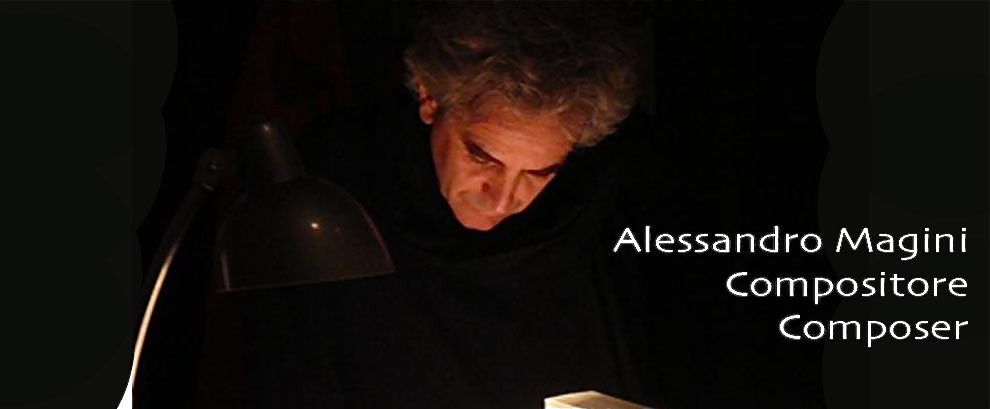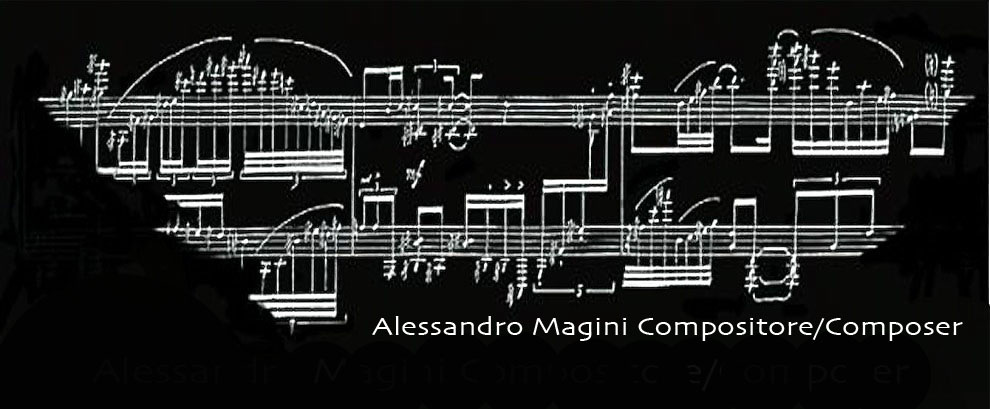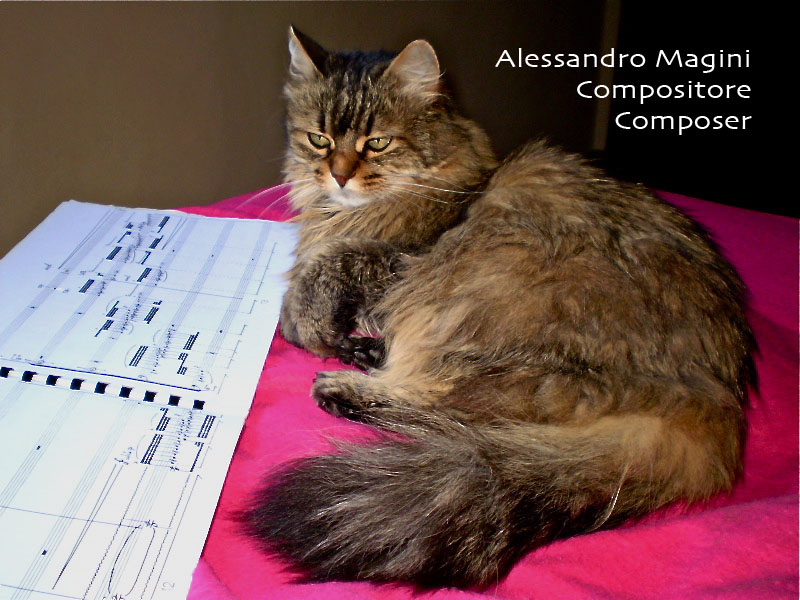SHORT BIOGRAPHY
Alessandro Magini (composer, musicologist, educator) held the chair of Musical Dramaturgy and Composition Methodologies for Stage Music at the National Academy of Dramatic Art in Rome (1999–2023). He was a board member of Tempo Reale in Florence and part of the probiviri committee for the SIAE-Classici d’oggi project, supporting and promoting contemporary Italian music. He is president of the Accademia Bardi (arts, music, humanistic, and contemporary culture). As a member of the Italian Cinema Academy, he served for over a decade on the jury for the David di Donatello awards.
In 2023, he was appointed academician in the Music and Performing Arts Class of the Academy of the Arts of Drawing in Florence (the oldest still-active academy, founded by Giorgio Vasari in 1563), and in 2025, he joined the Artistic Council of Résonance Contemporaine (France).
For six years (2004–2010), he was the artistic director, alongside Alessandro Bertini, of the Centro Magnolfinuovo in Prato (formerly the theater workshop of Luca Ronconi). There, he designed and conducted training and production courses in contemporary musical dramaturgy and contemporary music (in collaboration with the National Academy of Dramatic Art and the Teatro Metastasio, formerly Tuscany’s stable theater), engaging composers, instrumentalists, directors, artists, and scholars such as Alessandro Solbiati, Kaija Saariaho, Jonathan Harvey, Salvatore Sciarrino, Paul Badura-Skoda, Michele Tadini, David Bellugi, Ivano Battiston, Francesco Dillon, Claudia M.T. Hasslinger, Susanna Rigacci, Giovanni Guanti, Guido Salvetti, Stefano Lombardi-Vallauri, Sergio Givone, Piotr Fomenko, Nikolaj Karpov, José Sanchis Sinisterra, Ugo Gregoretti, Marisa Fabbri, Paolo Terni, and others.
His catalog includes over one hundred works, many of which were commissioned for institutional projects focused on the relationship between humanistic and contemporary culture (National Central Library of Florence, Accademia della Crusca, Italian Congregation of Vienna, Opera di Santa Croce Florence, Marucelliana Library, and Riccardiana Library of Florence) and for international contemporary music festivals and concert series (Festival Antidogma, MITO Settembre Musica, GAMO Festival Florence, Cantiere di Montepulciano, Festival 7bis Chemin de Traverse Bourg-en-Bresse, Festival Société de Musique Contemporaine Lausanne, Rencontres Contemporaines Lyon, Conservatoire Musique, Danse & Théâtre de Roanne, Maratona Contemporanea at Teatro La Fenice Venice, etc.). He has collaborated with artists from various generations and disciplines on the international scene.
With Résonance Contemporaine (with which he maintains a steady collaboration) and its director Alain Goudard, he recently developed projects such as Vola alta parola (dedicated to poet Mario Luzi, for six female voices and piano), Le rayon ardent (on texts by Michelangelo, for six female voices, electronics, spoken voices, and video), Le Metamorfosi(for three female voices, clarinet, violin, cello), and L’horloge de l’âme (for an ensemble of Celtic harps, soprano saxophone, percussion, spoken voice, and electronics). With violinist and violist Alberto Bologni, he created in 2024 the trilogy Preludio scordato della sera (for solo violin, solo viola, electronics, and video) dedicated to Dino Campana, a project in collaboration with the Marucelliana Library of Florence – Ministry of Cultural Heritage, the Centro Studi Campaniani, and Musica Ricercata.
He collaborates with artist Marco Bagnoli and his contemporary art center Spazio X Tempo (Empoli-Florence) on stage works integrating visual arts, music, poetry, and theater. He has authored numerous musicological essays published in specialized journals.
He earned his diploma in composition from the G.B. Martini Conservatory in Bologna and, with honors, from the Advanced Composition Courses of the International Music Academy of Novara. He holds a degree in Musical Dramaturgy from the University of Bologna and also studied organ, piano, and harpsichord. His musical and musicological education is indebted to Roberto Pichini, Alessandro Solbiati, Franco Donatoni, Aldo Clementi, Luigi Rognoni, Lorenzo Bianconi, and Thomas Walker. Equally significant were his advanced courses with Paul von Schilhawsky on piano performance practice in German Lied repertoire, as well as masterclasses, seminars, and encounters with Niccolò Castiglioni, Giacomo Manzoni, György Ligeti, and Luciano Berio.





Commenti recenti